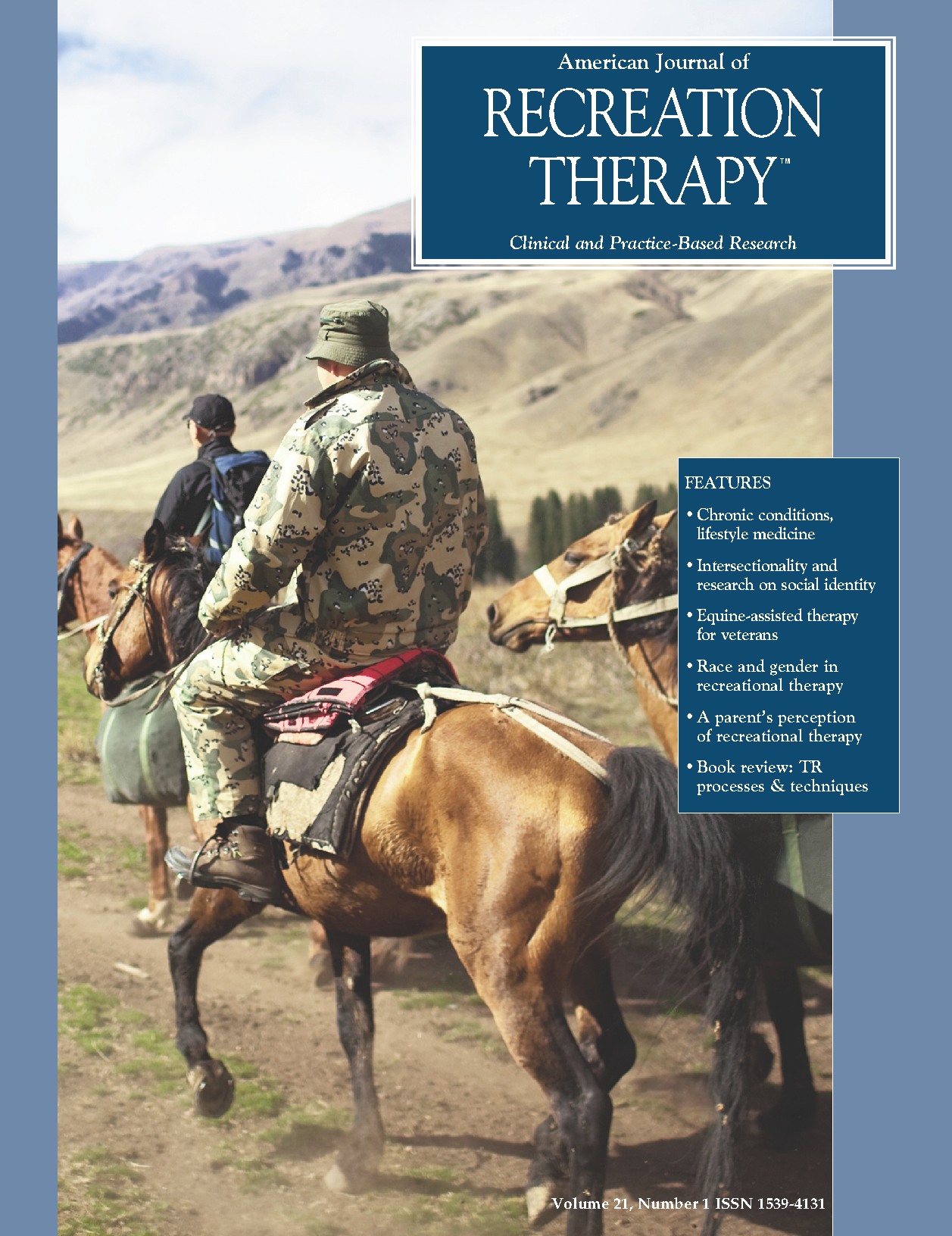Professional identity: Race and gender in recreational therapy
DOI:
https://doi.org/10.5055/ajrt.2022.0254Keywords:
identity, profession identity, race, gender, recreational therapyAbstract
Professional identity in recreational therapy, specifically for males, Black, Indigenous, and Persons of Color, presents a great opportunity for the profession to begin to explore ways to become more diverse. Numerous publications and demographic information from national organizations and credentialing agencies continue to show a lack of racial and gender diversity among recreational therapists (RTs). Using the dialogical self-theory as a theoretical framework, this conceptual piece seeks to discuss, describe, and present strategies to increase both racial and gender diversity. Professional identity among RTs stems from multiple identities, both internal and external which undergird a complexity of identity formation as students matriculate through colleges and universities toward becoming a RT.
References
Fitzgerald A: Professional identity: A concept analysis. Nurs Forum. 2020; 55(3): 447-472
Merriam-Webster: Available at https://www.merriam-webster.com/dictionary/professional. Accessed March 15, 2021.
Stalburg CM: Professional identity formation. Available at https://open.umich.edu/sites/default/files/downloads/0104-f13-ms-coursera-imhpe-cstalburg-professional_identity_formation.pdf. Accessed March 15, 2021.
Hermans HJM, Gieser T (eds.): Handbook of Dialogical Self Theory. Cambridge: Cambridge University Press, 2012. Available at https://www.recreationtherapy.com/trcollg.htm. Accessed March 15, 2021.
Ashforth B, Mael F: Social identity theory and the organization. AMR. 1989; 14(1): 20-39.
Erikson E: Identity: Youth and Crisis. New York: W.W. Norton, 1968.
Turner A, Knight J: A debate on the professional identity of occupational therapists. Br J Occup Ther. 2015; 78: 664-673. DOI: 10.1177/0308022615601439.
Edwards H, Dirette D: The relationship between professional identity and burnout among occupational therapists. Occup Ther Healthc. 2010; 24: 119-129. DOI: 10.3109/07380570903329610.
McGinnis PQ, Guenther LA, Wainwright SF: Development and integration of professional core values among practicing clinicians. Phys Ther. 2016; 96(9): 1417-1429. DOI: 10.2522/ptj.20150189.
Black LL, Jensen GM, Mostrom E, et al.: The first year of practice: An investigation of the professional learning and development of promising novice physical therapists. Phys Ther. 2010; 90(12): 1758-1773. DOI: 10.2522/ptj.20100078.
Waller SN, Costen WM, Wozencroft AJ: If we admit them, will they stay? Understanding the role of social connectedness in the retention of African American students in a recreation and leisure studies program. SCHOLE. 2011; 26(1): 30-48.
Published
How to Cite
Issue
Section
License
Copyright 2000-2025, Weston Medical Publishing, LLC and American Journal of Recreation Therapy. All Rights Reserved.


